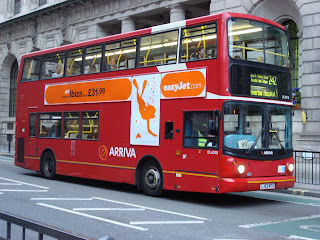About 100 tourist information kiosks will be set up by August in the city ahead of the Commonwealth Games in October.
The Municipal Corporation of Delhi (MCD) will set run them on a build-operate-transfer (BOT) basis.
'These information kiosks, numbering at least 100, will be put up at every Games venue and tourist spots like Red Fort, India Gate and Qutub Minar,' said a senior official of MCD.
MCD has decided to sell from these kiosks items like chocolate replicas of the Qutub Minar, Old Delhi's famous jalebi-shaped earrings and T-shirts with messages like 'Welcome to Delhi', 'Commonwealth Games 2010', 'Delhi-Dil Se' and 'I love My Delhi' and T-shirts with pictures of city monuments.
'Apart from this, the kiosks will also have stone replicas of various monuments for sale,' the official said.
The stalls will also have handicraft and handloom items popular in various parts of the country. 'The civic body is in talks with the Handicrafts and Handlooms Exports Corporation of India ,' the official said.
Pamphlets and other information material about the city, historical spots and information on tourist spots like Agra and Jaipur will also be available, he said.
The MCD also plans to use these kiosks for currency exchange, but the civic body is still awaiting a clearance from the central government. The kiosks will also help visitors with taxi and autorickshaw booking.
Each kiosk will be 10 feet by 10 feet in size and its front will be made of glass. It will also have a solar panel on top to generate electricity.
The side panel of the kiosk will carry information about tourist spots. The kiosks will be in place by the first week of August and will be removed soon after the Commonwealth Games.
The Municipal Corporation of Delhi (MCD) will set run them on a build-operate-transfer (BOT) basis.
'These information kiosks, numbering at least 100, will be put up at every Games venue and tourist spots like Red Fort, India Gate and Qutub Minar,' said a senior official of MCD.
MCD has decided to sell from these kiosks items like chocolate replicas of the Qutub Minar, Old Delhi's famous jalebi-shaped earrings and T-shirts with messages like 'Welcome to Delhi', 'Commonwealth Games 2010', 'Delhi-Dil Se' and 'I love My Delhi' and T-shirts with pictures of city monuments.
'Apart from this, the kiosks will also have stone replicas of various monuments for sale,' the official said.
The stalls will also have handicraft and handloom items popular in various parts of the country. 'The civic body is in talks with the Handicrafts and Handlooms Exports Corporation of India ,' the official said.
Pamphlets and other information material about the city, historical spots and information on tourist spots like Agra and Jaipur will also be available, he said.
The MCD also plans to use these kiosks for currency exchange, but the civic body is still awaiting a clearance from the central government. The kiosks will also help visitors with taxi and autorickshaw booking.
Each kiosk will be 10 feet by 10 feet in size and its front will be made of glass. It will also have a solar panel on top to generate electricity.
The side panel of the kiosk will carry information about tourist spots. The kiosks will be in place by the first week of August and will be removed soon after the Commonwealth Games.




